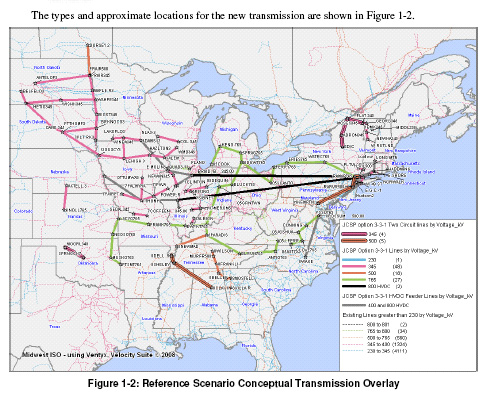Citizens League and “Electrical Energy?”
July 17th, 2012
Citizens League has an “Electrical Energy” project sponsored by none other than Great River Energy, Xcel Energy, District Energy and University of Minnesota Energy Management:
So what is Citizens League doing “to develop and advance policy recommendations?” What are the sponsors after? Looking at their report, it seems the focus is on advancement of utility desires for utility benefit and profit, and given the assumptions in this report, I don’t want to see ANY 0olicy recommendations come out of it.
Here’s the report:
They’ve hosted several meetings across the state so far and there are more to come:
Upcoming Meetings (click date/location link for their page for that meeting):
July 24 — Rochester
5:30-7:00 p.m.
University Center Rochester
Main campus building, room CF206/208 in Coffman
851 30th Ave SE, Rochester (building map)July 25 — Maple Grove
6:00-7:30 p.m.
Great River Energy
12300 Elm Creek Blvd N, Maple Grove 55369July 31 — St. Paul
5:30-7:30 p.m.
Rondo Community Outreach Library, Multi-Purpose Room
461 N Dale Street, St. Paul
So what’s the problem? In large part, it’s how they’re framing the problem!
- It starts off with a sense of urgency — “We must start now, before crises arise.” “Now is the time to act.” “We must confront these issues now, before they reach a crisis point.” “This is the time to ask:…” But it’s years too late, In 2002 the wheels were set in motion to put us where we are today with the enviros deal to support CapX 2020 and other transmission, and then their support of the 2005 Transmission bill:
$8.1 Million Wind on Wires grant from McKnight/Energy Foundation
2005 Ch 97 – Xcel transmission perks and C-BED
After all this, it’s waaaaaaay too late! With CapX 2020, we’re now committed to 50+ years of central station business-as-usual power. It’s too late to create a “vision.”
- Report operates on false and outdated presumptions of need – of demand for electricity, of infrastructure needs and reliability. Claims “we cannot assume we’ll use electricity in the same way in 30 years as we do today,” but with CapX we’ve just locked in to another4 50 years of central station power. Xcel itself admits dramatically reduced demand, both peak and energy demand, significantly to alter forecasts to 0.5% and 0.7% respectively:
Xcel’s Resource Plan Update – Dec 2011
Look at the reserve margins (p. 46, et seq.) in the NERC 2011 Long Term Reliability Assessment!
- They talk a lot about retail rates, and that “the price of electricity has been rising over past decades; however, this increase has not kept up with inflation.” This is a REGULATED industry! Rates have kept up with utility costs, and I guess it’s a safe bet that retail rates have NOT dropped in relation to the crash in wholesale costs. Wholesale rates are so low, and have been for so long, that they probably owe us one massive refund! So what is this section supposed to mean? (see p. 8-10).
- Green House Gas emissions are way down, they state that it is due to a “reduced reliance on coal.” How about impact of decreased demand for electricity, decreased burning of coal, focused on lower need, not “reduced reliance.” There’s a difference! Xcel’s Sherco is down, has been for what, a year now? Xcel’s Black Dog is down, Minnesota coal plants are not running and it has nothing to do with a choice in fuel, but more to do with unplanned explosions at the generators at a time when that capacity is not needed! At least we presume the explosions are unplanned.
- Claims of inefficiency belie the reliance on transmission and CapX 2020 and other commitments to continued use of transmission that is inherently inefficient, and to plan to use it even more inefficiently in transferring bulk power over long distances. “It would be inefficient to invest heavily in infrastructure with a life cycle of 100 years, for example, if a key resource supporting that system is expected to become rare or expensive in 20years.” Well DUH, but that’s exactly what we’ve done, what we’re doing, with CapX. Anyone making noises about efficiency has no business promoting transmission! And yet look at the plans promoting transmission across the country!
No way do they want our transmission out to the Mid-Atlantic:
East Coast Governors STAND UP AGAIN!
- Throughout, this report does not distinguish between transmission and distribution issues, but it should! Particularly in discussing outages, and even in the discussion of “back-up generators for business” where reliability does NOT presume back-up generators as redundancy!
- Pay attention to the order of “Key Characteristics of the Electrical System” — RELIABILITY is not first! It’s about money!
- Appears to advocate for perpetual motion in stating “A system that cannot continue indefinitely without bankrupting the participating people or institutions cannot be sustained.” Very odd concept of economic viability. Energy systems will always require more input that what is received as output.
As I look at this report, and its trajectory, it seems like a prelude to a dis! Perhaps increased rates for lower MWhr sales, or perhaps even claiming unused and unneeded coal plants as stranded costs!

Leave a Reply